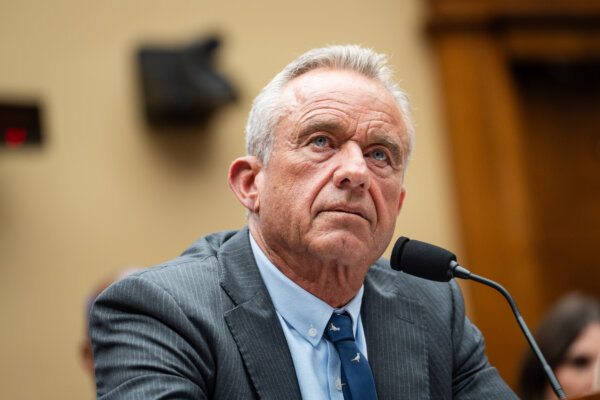![]() Federal officials are working on revamping the program that provides compensation for people who suffer injuries from vaccines, Health Secretary Robert F. Kennedy Jr. said on June 30.
Federal officials are working on revamping the program that provides compensation for people who suffer injuries from vaccines, Health Secretary Robert F. Kennedy Jr. said on June 30.
The National Vaccine Injury Compensation Program was established as part of the National Childhood Vaccine Injury Act of 1986. That law also granted vaccine manufacturers immunity from lawsuits. Under the program, injury claims are lodged with judges, who decide whether to grant payouts after hearing from petitioners and the government.
Department of Justice attorneys, representing the Department of Health and Human Services—the department Kennedy heads—often present evidence opposing the claims.
The program has since 2006 awarded money, drawn from surcharges on vaccines to more than 13,000 people.
Multiple lawmakers and lawyers have advocated moving COVID-19 vaccines to the Vaccine Injury Compensation Program so that people with injuries have a better chance of receiving compensation and, if they’re paid, can receive more money.
“We’re looking at ways to enlarge that program so that COVID-vaccine-injured people can be compensated,” Kennedy told Carlson.
Kennedy also said officials are looking at methods to enlarge the statute of limitations, which is currently only three years.
“A lot of people don’t discover their injuries until after that,” he said.
“And there’s no discovery in that program, there’s no rules of evidence. The program has devolved into lawyers from the justice—you’re not suing the vaccine company, you’re petitioning my agency, and it’s represented traditionally by the Department of Justice—and the lawyers in the Department of Justice, the leaders of it were corrupt, and … they saw their job as protecting the trust fund rather than taking care of people who made this national sacrifice. And we’re going to change all that.”
Safety of mRNA
Carlson asked Kennedy later about whether he’s satisfied that messenger ribonucleic acid (mRNA) technology is safe.
“I am not satisfied,” Kennedy said. “My opinion about that is irrelevant, but we will be doing those studies, and I would say there’s a lot of skepticism in this agency about mRNA vaccines.”
Regulators previously approved the two existing vaccines after clinical trials found they conferred shielding against COVID-19. Participants who received a vaccine were more likely to experience adverse events such as headaches.
Some additional safety issues have since been identified, including heart inflammation.
Kennedy said that safety studies “simply have not been done, but there is [sic] enough anecdotal reports of people getting profound injuries that may or may not be associated with it, and we’re going to answer those questions.”
The vaccine manufacturers have maintained that their vaccines are safe and effective.











